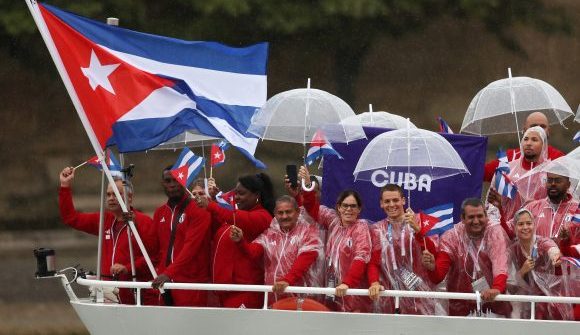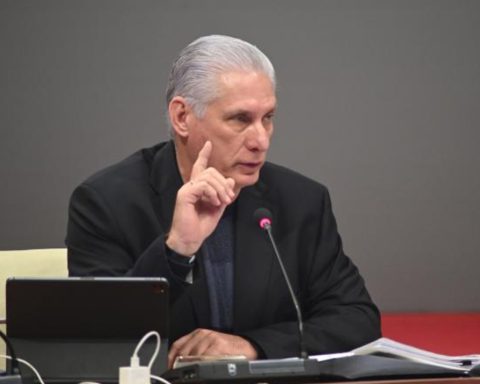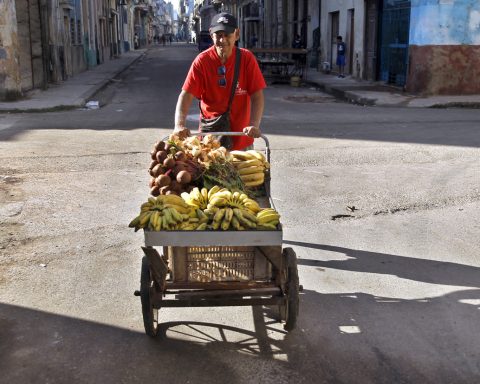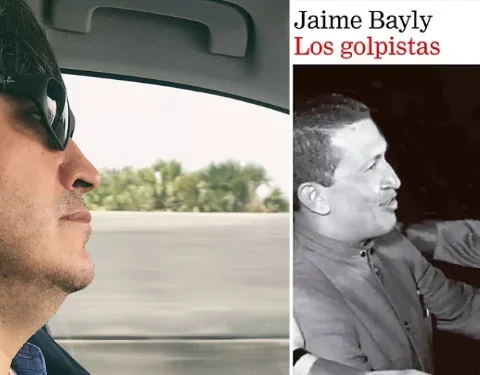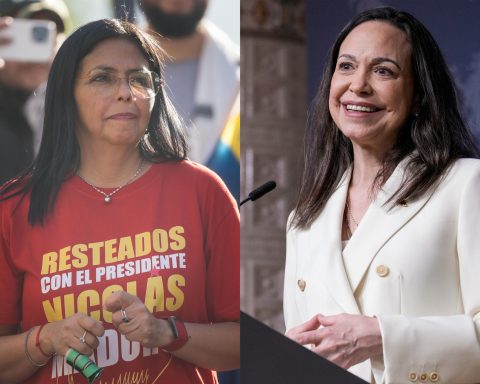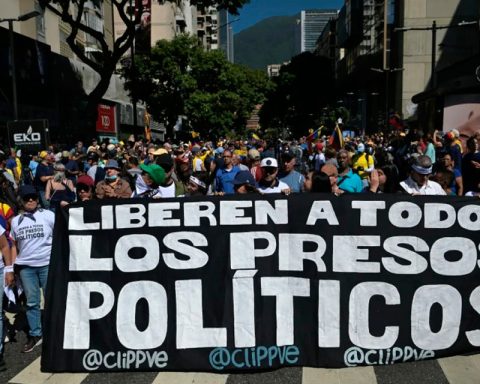HAVANA, Cuba.- For the purposes of Cuban sport, Paris It marked the beginning of the decline that many had predicted. What happened there was a funeral, or at least, the diagnosis of a serious illness in progress.
I know that right now there are a lot of people rehearsing speeches praising the delegation’s “combative attitude”, accusing the “imperialist blockade” of making it impossible to carry out preparation plans, and slandering anything that smacks of “malicious criticism”.
But the facts speak for themselves. One, in the French capital Cuba signed its worst collective position since 1960; two, it got its lowest number of titles since 1968; and three, he closed the fewest medal harvest since 1972.
Nothing could be more like a disaster (as illustrated in the attached table), no matter how many arguments are put forward in support of this. Let us look separately at each of the points referred to in the previous paragraph.
| Olympics | PLACE | EITHER | P | B | TOTAL |
| 1964 | 30 | 0 | 1 | 0 | 1 |
| 1968 | 31 | 0 | 4 | 0 | 4 |
| 1972 | 14 | 3 | 1 | 4 | 8 |
| 1976 | 8 | 6 | 4 | 3 | 13 |
| 1980 | 4 | 8 | 7 | 5 | 20 |
| 1992 | 5 | 14 | 6 | 11 | 31 |
| 1996 | 8 | 9 | 8 | 8 | 25 |
| 2000 | 9 | 11 | 11 | 7 | 29 |
| 2004 | 11 | 9 | 7 | 11 | 27 |
| 2008 | 19 | 3 | 10 | 16 | 29 |
| 2012 | 16 | 5 | 3 | 6 | 14 |
| 2016 | 18 | 5 | 2 | 4 | 11 |
| 2020 | 14 | 7 | 3 | 5 | 15 |
| 2024 | 32 | 2 | 1 | 6 | 9 |
One: Out of the Top 20… and the Top 30
The pre-competition idea The goal was to finish among the top twenty countries in the ranking. It seemed like an achievable goal and that’s how the national sports bosses made it known, that’s how it was conceived Sports Illustrated in his Olympic preview and that’s what I calculated too, convinced as I was that the great shipwreck would not be until Los Angeles 2028.
However, we were all wrong. A powerful domino effect began to topple towers, uncertainty became a full-time ally of panic, and in the end the table by nations yielded a shameful 32nd place.
In truth, it took a crystal ball to predict that the fall would be so deep. In Tokyo 1964, Enrique Figuerola’s solitary silver medal had taken Cuba to 30th place. In Mexico 1968, the four runners-up finishes left it in 31st place. And from Munich 1972 onwards, permanent positions were rented in the Top 20…
You would have to go back to Rome 1960 (where no medals were won) to find, in terms of final classification, a more negative performance than this one in Paris.
Two: Gold, more expensive than ever
Let’s go back in time to talk, solely and exclusively, about titles, which for better or worse determine the order of the teams in the medal table.
In 1964, American Bob Hayes cut short Figuerola’s golden dream in the 100m. Four years later, boxers Enrique Regüeiferos and Rolando Garbey also came close to the throne, as did the short reliefs of both sexes.
It was known that the gold was about to fall (the last one had been taken Ramon Fonst in the distant 1904) and did so three times in 1972 through the boxers Orlando Martínez, Emilio Correa and Theophilus StevensonWell, it has never been lowered below that amount until now.
What’s more, they never won just three golds again, except in that strange 2008 when the delegation won silver by losing a range of finals, including four in the ring and another on the baseball diamond.
Now, sadly, there were only two crowns. And that is despite the absence of Russia (sanctioned by the IOC following its invasion of Ukraine) significantly cleared the way in disciplines such as boxing, judo and wrestling, which are of vital importance to the island’s aspirations.
Three: And when are the medals coming?
Julius Caesar the Cross and Idalys Ortiz—illustrious veterans who carried the flag on opening day—went away empty-handed, and the same fate befell virtually all those who entered the ring in the opening week of the competition.
There was stress. The start of the grind took longer than expected, and as what starts badly ends badly, the summary was written in red numbers. That is, only nine medals, which broke a streak of ten consecutive Games with double-digit balances (to make matters worse, add that two thirds of the meager total this time were bronze prizes).
It is shocking. In Munich ’72, the Cubans had won eight awards; half a century later, only one more was obtained. The unproductivity of the economy seems to have taken over sport.
The downward trend could not be more marked: in Barcelona, during the peak of Cuban Olympic performance, the number of medals exceeded thirty; between 1996 and 2008 the number always exceeded twenty; and between 2012 and 2020 it fluctuated between 11 and 15, as a prelude to the drought suffered in Paris.
A note for the “deserters”
It is a fact: the troop of 21 emigrants The Cuban athletes who defended foreign flags showed levels of efficiency far superior to that of the 61 athletes sent by INDER, as an unequivocal sign that their lifestyles and training regimes are on the right track.
The “deserters” hung eight medals around their necks (only one less than their peers on the “official” side), and made headlines in the world press with performances such as that of triple jump, which made a full podium by Jordan Diaz (Spain), Pedro Pablo Pichardo (Portugal) and Andy Diaz (Italy).
They also deserved headlines Loren Berto Alfonso, who eliminated his compatriot La Cruz; Wilfredo León and Melissa Vargas, undisputed leaders of the volleyball teams of Poland and Turkey, respectively; and Yasmani Acosta, rival of Mijaín López in the fight where the latter became the first athlete to dominate an individual event throughout five editions of the summer competition.
Notes of interest
* Athletics was left without a medal for the first time since 1960, and of the 18 athletes included, only the performance of middle-distance runner Daily Cooper was a saving grace.
*Judo, which had always been on the podium since Montreal ’76, lacked even the most basic spark of brilliance.
*If the embarrassment did not reach legendary proportions, it is due to the wrestling work, which won more than half of the medals.
*Not even the traditional flagship, boxing, could stand up for the official delegation of the Island: out of five contestants, only one made it to the title discussion in his category.
*The level shown by Cuba in various disciplines (table tennis, diving, swimming, pentathlon, weightlifting, shooting and rowing) fell far short of the competition requirements. One might wonder whether it was wise to incur such expenses in the current circumstances of the country.
*In the battle for Latin American supremacy, Brazil led the way (three titles and a total of twenty medals), while Ecuador, Argentina, Chile, the Dominican Republic and Guatemala each won one gold per capita.
OFFICIAL DELEGATION
Members: 61 (34 men and 27 women)
Harvest: 9 medals (2-1-6)
- Golds: Mijaín López (Greek wrestling) and Erislandy Álvarez (boxing)
- Silver: Yusneylis Guzmán (wrestling)
- Bronzes: Gabriel Rosillo (Greek wrestling), Luis Orta (greco wrestling), Milaimys Marín (wrestling), Yarisleidis Cirilo (canoe), Rafael Alba (taekwondo) and Arlen López (boxing)
EMIGRATED DELEGATION
Members: 21 (17 men and 4 women)
Harvest: 8 medals (1-4-3)
- Gold: Jordan Diaz (triple jump, Spain)
- Silver medallists: Pedro Pablo Pichardo (triple jump, Portugal), Loren Berto Alfonso (boxing, Azerbaijan), Wilfredo León (volleyball, Poland) and Yasmani Acosta (Greek wrestling, Chile)
- Bronze medalists: Andy Díaz (triple jump, Italy), Enmanuel Reyes (boxing, Spain) and Javier Ibáñez (boxing, Bulgaria)
OPINION ARTICLE
The opinions expressed in this article are the sole responsibility of the person issuing them and do not necessarily represent the opinion of CubaNet.
Follow our channel WhatsApp. Receive the information from CubaNet on your cell phone through Telegram.
